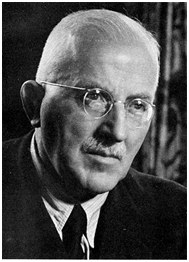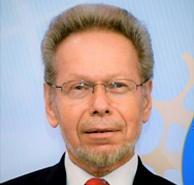The year 2020 marked the 100th anniversary of the publication of a very important article published by the Professor Hermann Staudinger (H. Staudinger, Ber. Dtsch. Chem. Ges. 1920, 53, 1073. H. Frey, T. Johann, Polym. Chem. 2020, 11, 8), which the International scientific community considers to be the beginning of Polymer Science. On the first day of the 13thHellenic Polymer Society International Conference, Sunday the 12th of December 2021, we will celebrate the 100th anniversary of the field of macromolecular science with a special event. Since this conference had to be postponed from 2020 to 2021 due to the corona pandemic, we will celebrate the event this year.
Hermann Staudinger was a German organic chemist who demonstrated the existence of macromolecules, which he characterized as polymers. For this work he received the 1953 Nobel Prize in Chemistry. The evolution of macromolecules essentially began with this pioneering “macromolecular hypothesis” of Staudinger. While at Karlsruhe and later, Zurich, Staudinger began research in the chemistry of rubber, for which very high molecular weights had been measured by the laws of the physical methods of vapor pressure and osmotic pressure of Raoult and van 't Hoff, respectively. Contrary to prevailing ideas, where leading organic chemists believed that the measured high molecular weights were only apparent values caused by the aggregation of small molecules into colloids, Staudinger proposed in that landmark paper of 1920 that rubber and other polymers such as starch, cellulose and proteins are long chains of short repeating molecular units linked by covalent bonds.

Prof. Hermann Staudinger
Within this century, polymers have greatly improved human life, since the pioneering macromolecular hypothesis of Hermann Staudinger. Polymer science and technology have greatly evolved, resulting in the invention of advanced multifunctional materials. Novel synthetic and characterization methods of many different classes of polymers have been accompanied by an in-depth understanding of the behavior of polymers in solution and in bulk.
Today the field is growing even more intensely, generating novel application areas and, at the same time, industrial products are continuously being improved. New issues such as energy storage and conversion, new therapies for diseases and, even, approaches to a “cyclic economy” can be resolved based on the evolution of Macromolecular Science. On the other hand, there are still some challenges for current polymer science that have to be addressed, including issues related to recycling and the eventual fate of polymer materials, as well as renewability and waste reduction.
This event will focus on the past, present and future of polymer science, from dealing with present challenges to enabling future solutions. We are delighted that internationally renowned speakers accepted our invitation to discuss past, present and emerging future topics of macromolecular chemistry and physics.
Sunday, December 12th, 2021
Special Event for the 101 Years of Macromolecular Science
|
18:00-18:15
|
Welcome
|
|
18:15-18:30
|
Prof. Athanassios Kyriazis
General Secretary of Research and Innovation
|
|
18:30-19:00
|

Dr. Andrew Lovinger
National Science Foundation, USA
|
|
19:00-19:30
|

Nikos Hadjichristidis
KAUST, Saudi Arabia
|
|
19:30-20:00
|

Doros N. Theodorou
National Technocal University of Athens, Greece
|
|
20:00-20:30
|

Georges Hadziioannou
Bordeaux University, France
|